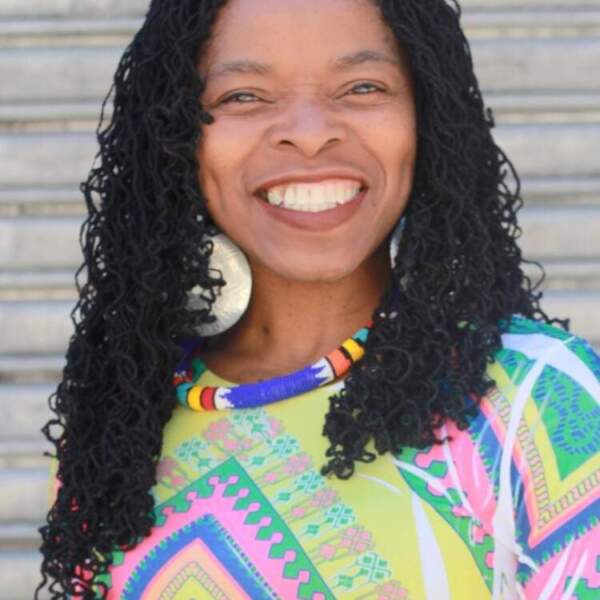Advertisement
As Told To
I want my students to stand on their own two feet. But I also want them to understand joy
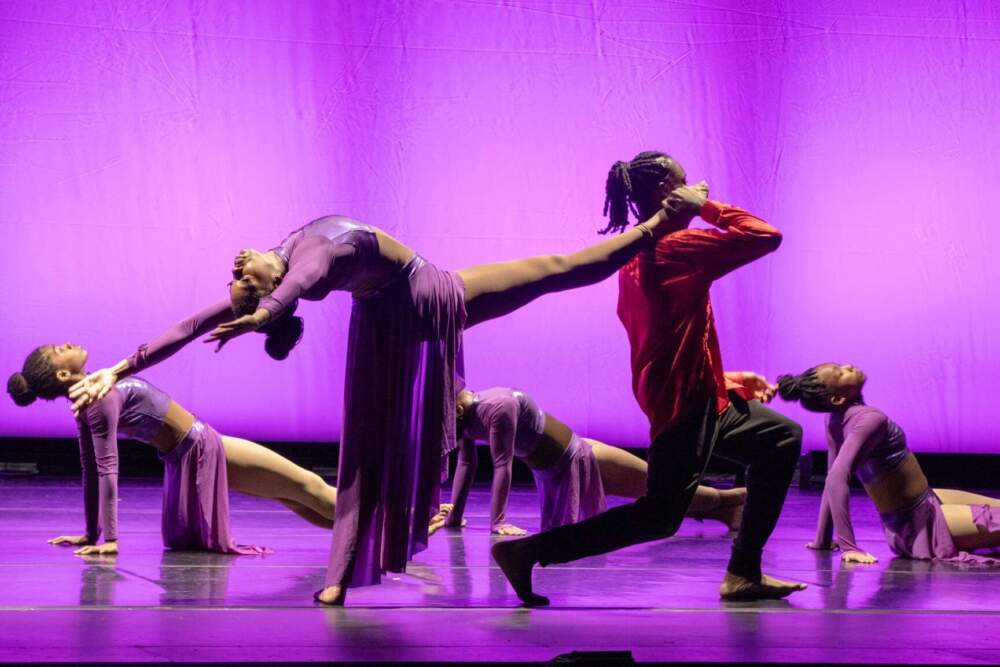
Shaumba-Yandje Dibinga founded OrigiNation Cultural Arts Center in 1994. The Center’s mission is to provide arts education and leadership programs for young people 3 to 18, with a focus on engaging Boston's underserved neighborhoods, including Dorchester, Roxbury and Mattapan.
“I want these kids to be in a space where they don't have to stress out too much about anything and just be able to enjoy life and utilize what they get from me to become better versions of themselves,” Dbinga explains.
What started as a one-woman organization now has two full-time and nine part-time employees. OrigiNation offers classes in tap, jazz, hip hop and African dance; musical theater; public speaking; and martial arts. Each year, they serve about 150 youth through on-site programs and an additional 1,500 through community outreach and education, mostly in local schools.
Cog spoke to Dibinga about how Black joy informs advocacy and how African culture and history influence contemporary American arts. Here she is, in her own words, edited for length and clarity.
—Kate Neale Cooper
I am the proud daughter of Congolese immigrants
My dad, Rev. Dr. Dibinga Wa Said, and my mom, Dr. Ngolela Wa Kabongo, were refugees from the Congo and they came here to study at Harvard. Their big thing for us was education. But they also wanted us to make sure we remembered who we are and where we come from.
We had a lot of challenges because we were African and we were a big family: nine kids. We were teased a lot. We were teased by white kids. We were teased by Black kids. At first we lived in married student housing in Cambridge, but eventually we moved to Mattapan and Roxbury. The bullying continued no matter where we lived. We got chased home. People threw rocks at my mom while she was waiting for us on the porch because she was dressed in African clothes. We had police escorts to and from school. We also grew up during the whole stop-and-frisk era in Boston.
And so, from trying to navigate finances, and being bullied, to racism, I had a lot of stress. There was a whole lot going on and I needed to create a space where there was joy outside of my family. And for me, dance was joy.
OrigiNation came from that experience. I wanted to make it easier for kids like me to find this kind of opportunity. I realized how much the arts, especially dance, really shaped who I was. I loved the feeling of being on stage, releasing any kind of stress that I had. But also watching people be excited and energized by what I was putting on stage.
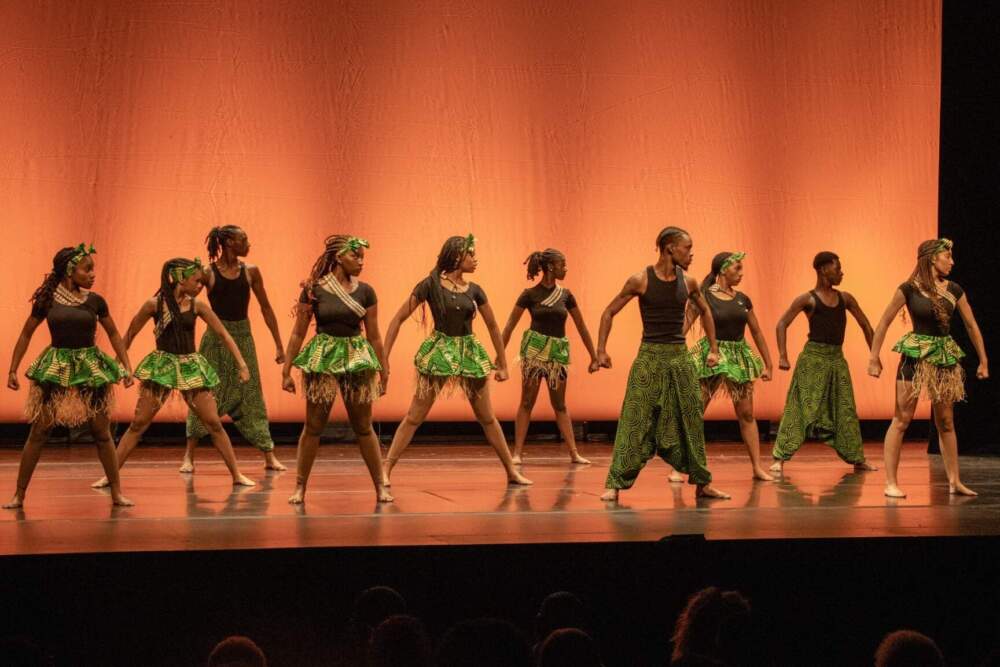
My goal is more than education — it is shelter
At first I wanted to create a shelter. I wanted a home where young people could go if they were going to run away, or if they were kicked out of their houses, and be safe.
I have that with OrigiNation today. It just looks a little bit different than I imagined. We don't have beds, but my students come in and they will tell you, “This is my home.” They call me and say, “Can I go into the studio? I just need to hear music. I want to hang out. I just want to dance.” So I was able to create that space.
I was a very good student. I was on the mock trial team and in honors classes. Originally, my parents wanted me to be a lawyer. I may not be a lawyer by degree, but I definitely advocate for my students in every way, shape and form — and I hold them accountable. I advocate for my students, you know, I go to parent-teacher conferences. I sit down with young people to help them figure out how to have tough conversations with their families.
Joy and advocacy work together
When George Floyd was murdered, we started to have even more in-depth conversations about social justice at OrigiNation. My students, my dancers were bringing these conversations to me about police brutality, about racism and discrimination and all of that. And so I had students in our studio, 9- to 12-year-olds, that were organizing rallies and marches from Nubian Square to the Ruggles police department and they're on their megaphones and they're holding signs.
My dancers in the studio are like, “Ms. Dibinga, can we choreograph a piece where we have a wall and like we're trying to climb over the wall to get to the U.S.?” “Can you get cages so that you put us in cages so that we can show, how terrible it is for people to put children in cages and for people to rip families apart at the border?” They had all of these wild ideas for stage direction. And I followed them.
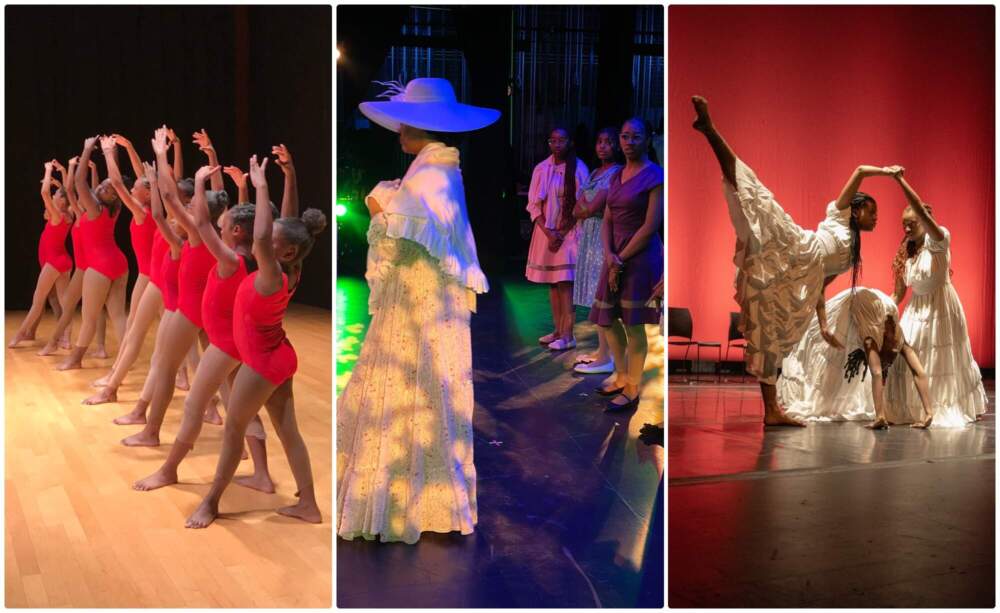
So joy for me, has been being able to watch them really overcome a lot of obstacles, whether it's bringing an artistic vision to the stage, or knowing they need to take a break when their grades aren’t where they want them to be or their mental health isn’t good. I’ll say, “What can I do to help you get the grades you need? And then once you're done, you can come right back into this space.” I'm very big on helping them become the best versions of themselves possible — no matter what — even if that means they’re not in here dancing and doing shows. Sometimes this includes helping them find mental health counselors.
Dancing is a gateway for bigger conversations
We really try to work with the whole child. A lot of students that I work with say they don't have anybody who’s really listening to them or paying attention to them. And so they're asking us for those things. Sometimes my dance class will dissolve into a conversation about an important topic because the students are feeling like they don't have the space to have those conversations anywhere else.
They're facing so many challenges and sometimes a young person will say to me, “Miss, thank you very much. No one's ever allowed me to share like that.” And that helps them get through the next class and or the next day, you know? There’s a lot of craziness happening in the world. So we’re doing more civic engagement. We're doing more storytelling through dance and spoken word, and that has worked wonders for our students — and for the audiences they perform for.
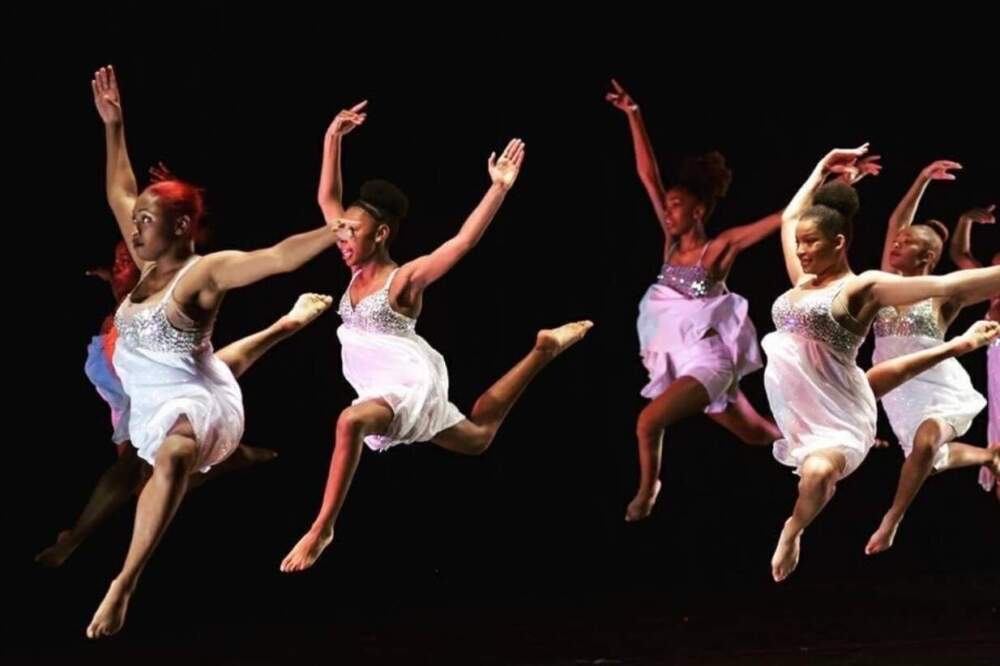
‘Giving back is the rent you pay for being on this Earth’
I love anything that makes my students happy. But I also hold them accountable. So it's not just tiptoeing through the tulips every single day. If I feel like they need to be reprimanded for something, then we're going to have that conversation, right? Because it needs to be had. And that helps them grow.
I want to be able to give them the tools so that when they face a new challenge, they can go into their toolbelt, pull out the right tool and fix that situation. I always say to them, “You know, I'm correcting you because I care.” “I'm fixing you because I know you can do better.” “I'm pushing you because I know where you can go. You may not see it, but I see it.”
My parents did this. They were always giving. Like Muhammad Ali said, giving back is the rent you pay for being on this Earth, right? Everybody needs to give back.
Also, in African culture, you’re not just the mom of your children, you’re everybody’s mom. Dads, too. And we own that. We treat other people's children as if they were ours without a second thought. With Black joy, that's part of it. Embracing your entire village. We are very protective of our children. And we want them to be able to stand on their own two feet, but we also want them to understand the point, the importance of joy. And the work we do through the performing arts and martial arts understands that.
So yeah, Black joy is a beautiful thing. It is a beautiful thing with all of the challenges that we face as a people — the joy and the love that we feel and share is unmatched.
